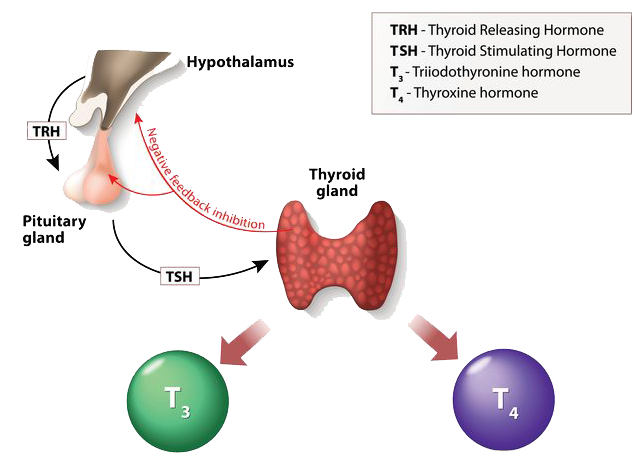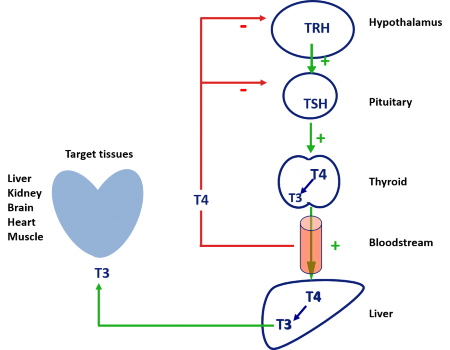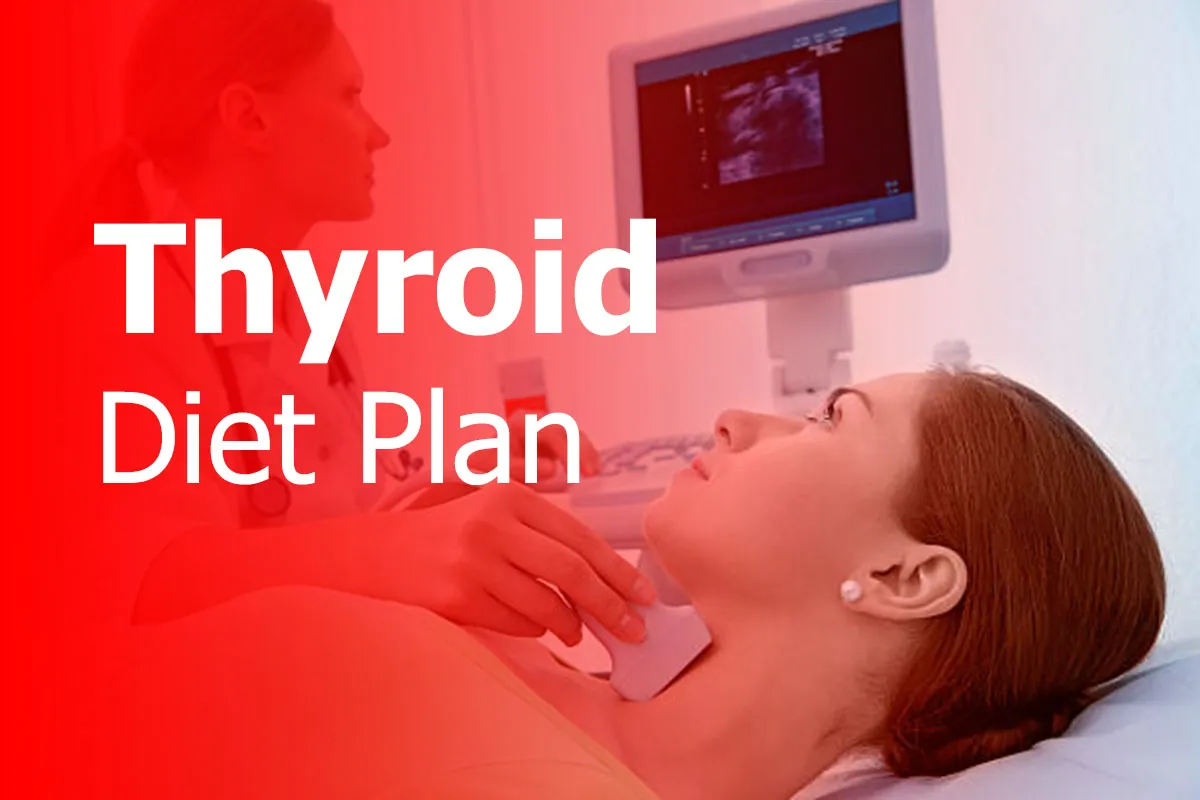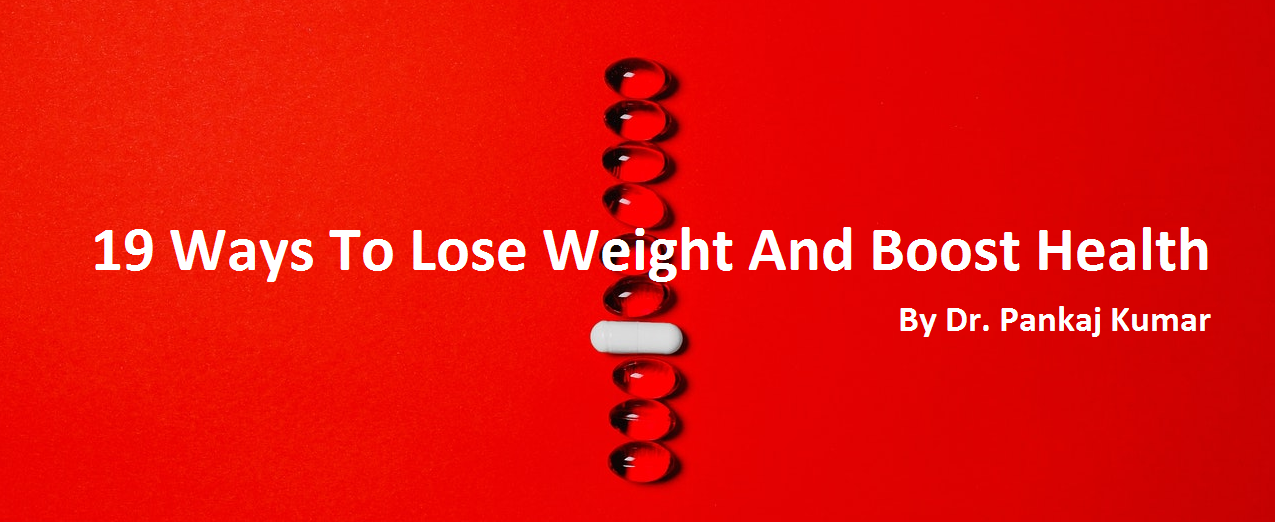.webp)
- 17th September 2020
Table of Contents
- Which nutrients are important for thyroid?
- Role of Iodine in thyroid function
- Role of zinc in thyroid function
- Role of Selenium in thyroid function
- Good sources of selenium
- The high amount of selenium
- Which nutrients are harmful to the thyroid?
- What a thyroid patient should not eat?
- Say no to these foods and supplements:
- Eat goitrogens foods in moderation to avoid interference with thyroid function.
- What are good thyroid foods?
- Why people gain weight in hypothyroidism?
- Does low thyroid cause food cravings?
- Tips for maintaining a healthy weight in hypothyroidism
- Useful Links:
Thyroid disease doesn’t refer to a single disorder, because there are many disorders related to the thyroid gland. But, the two most common types are hyperthyroidism and hypothyroidism. Read more about the basics of thyroid disorder here. To function optimally, the thyroid gland requires three important nutrients.
Which nutrients are important for thyroid?
The three most important nutrients are important for optimal thyroid health. These are
| 1. Iodine 2. Selenium 3. Zinc |
Role of Iodine in thyroid function
Iodine is an essential micronutrient. It plays a very crucial role in the synthesis of thyroid hormones, thyroxine T4 (4 iodine atom) and triiodothyronine T3 (3 iodine atom). It is required in very fewer amounts that are essential for the human body as many reactions are dependant on iodine. The normal blood level is around 8-12 micrograms/dl. The best sources are seafood like sea fish, sea salt, and cod liver oil. Small quantity is also found in milk, meat, vegetables, cereals. Freshwater iodine content is around 1-50 micrograms/liter. The daily iodine requirement for an adult is 150 micrograms per day. The requirement is increased in pregnancy up to 250 micrograms per day.
Role of zinc in thyroid function
Zinc is a component of many enzymes (more than 300 enzymes). Zinc is required for the synthesis of insulin by the pancreas and helps in immunity enhancement. The normal level of zinc in the blood is 96 micrograms per 100ml in healthy adults. The average adult body zinc level is 1.4 to 3 grams of zinc. Good sources of zinc are meat, milk, and fish.
Zinc deficiency can cause
- Growth failure
- Sexual infantilism
- Loss of taste
- Delayed wound healing
- Liver disease
- Anemia
- Spontaneous abortion
- Brain abnormality at birth (anencephaly)
Role of Selenium in thyroid function
Selenium is the most belittle mineral in the body. Selenium supplementation in children malnutrition, kwashiorkor is shown a very good result as these children start gaining weight. Selenium deficiency is noticeable in protein-energy malnutrition.
Selenium and vitamin E work synergistically to increase immunity in the human body.
Good sources of selenium
- Whole grains
- Dairy products like milk, paneer, and yogurt
- Fortified ready-to-eat breakfast cereals
- Fruits and
- Vegetables
The high amount of selenium
- Pork
- Beef
- Turkey
- Chicken
- Fish
- Shellfish
- Eggs
Which nutrients are harmful to the thyroid?
Goitrogens – are chemical substances that are involved in the development of goiter. It interferes with iodine uptake by the thyroid hormone. It is widely available in food and water. The cruciferous group of food may contain Goitrogens. These include cabbage, cauliflower, and broccoli.
Cyanoglycosides and thiocyanates are other goitrogens which are found in dairy products.
Foods rich in Goitrogens
- Soya foods - tofu, tempeh, beans, soy milk, etc.
- Vegetables - cabbage, broccoli, kale, cauliflower, spinach, etc.
- Fruits - strawberries, peaches, pears, and strawberries, etc.
- Starchy plants - sweet potatoes, cassava, peaches, etc.
- Seeds and Nuts - millet, pine nuts, peanuts, etc.
If you are diagnosed with hypothyroidism then you should avoid or take the fewer amount of cooked goitrogenic foods. Take plenty of iodine-rich foods. Some research says goitrogens may inactivate after cooking so you can take in moderation.
According to some studies, pearl millet might interfere with thyroid function, even in absence of an iodine deficiency.
What a thyroid patient should not eat?
As discussed earlier, you can consume properly cooked foods that contain goitrogens. Hypothyroid people usually gain weight so, highly processed foods are generally unsafe as it contains a lot of calories.
Say no to these foods and supplements:
- Millets - all varieties
- Highly processed foods - Bakery products like cakes, cookies, hot dogs, etc.
- Supplements - Taking a high amount of zinc and selenium may result in some unwanted side-effects so try to consume it with food.
Eat goitrogens foods in moderation to avoid interference with thyroid function.
- Soya foods - tofu, tempeh, beans, soy milk, etc.
- Vegetables - cabbage, broccoli, cauliflower, kale, spinach, etc.
- Fruits - strawberries, peaches, pears, and strawberries, etc.
- Starchy plants - sweet potatoes, cassava, peaches, etc.
- Seeds and Nuts - millet, pine nuts, peanuts, etc.
- Beverages - black coffee, green coffee, green tea, alcohol, etc.
What are good thyroid foods?
I know you are eagerly waiting for this section. Let’s know what food a hypothyroid patient can eat:
- Eggs - the egg has two parts one is egg yolk which is rich in iodine and selenium and the second part is the white part which is full of protein. One egg contains around 5-6 grams of protein.
- Meat - all meats are safe but red meat should be avoided due to cholesterol and saturated fats. Chicken is one of the good options.
- Fish - all seafood like halibut, salmon, shrimp, tuna, etc.
- Vegetables - all vegetables are safe. cruciferous vegetables are also safe if you are using cooked and in moderate amounts.
-
Fruits - all other fruits, including berries like cranberries, ripe bananas, oranges, tomatoes, cucumber, pomegranate, et
-
Gluten-free grains and seeds - Brown rice, quinoa, buckwheat, chia seeds, perilla seeds, and flax seeds
-
Dairy products - all dairy products are safe including milk, paneer, cheese, yogurt, etc.
-
Beverages - Water is the best beverage. You can consume other non-caloric and non-caffeinated beverages also.
Why people gain weight in hypothyroidism?
The mechanism of weight gain in hypothyroid individuals is very complex. To understand this first learn Basal metabolic rate. It is the energy utilized by an individual at rest in fasting state and at thermoneutral temperature. This energy is utilized to sustain normal cells and keep organ functioning within the body. It accounts for approximately 60–75% of total daily energy expenditure in individuals with a sedentary lifestyle.

In thyroid patients, BMR is decreased. When a patient is consuming a high-calorie diet with decreased BMR, some weight gain occurs.
More weight gain is associated with more severe hypothyroidism. It may not be associated with excess fat accumulation.
salt and water retention is the most common cause of weight gain in these individuals. Many studies have found that massive weight gain is rarely associated with hypothyroidism. In general, 2.5-4.5 kg of body weight gain may be attributable to the thyroid.
If an individual presents with only symptoms of weight gain, it is less likely that the weight gain is only due to the thyroid abnormalities.
To understand more watch this video: Wallet and Bank Account Concept of Weight Loss. by Dr. Pankaj Kumar
Does low thyroid cause food cravings?
Thyroid hormones are known to affect the basic metabolic rate. Thyroid dysfunction can have significant repercussions on appetite and body weight.

Hypothyroidism causes decreased basal energy expenditure with weight gain
Tips for maintaining a healthy weight in hypothyroidism
Disturbed metabolism may cause weight gain in hypothyroid individuals. These are a few useful tips to maintain a healthy weight.
- Adopt a habit of low to moderate carb diet - Low to moderate carb diet helps in losing weight. Avoid too low carb diet as it may decrease the level of thyroid hormone. One study reported thyroid hormone deficiency in an epileptic patient when he was treated with a keto diet. The thyroid hormone should be monitored regularly if you are starting a keto diet.
- Try yoga or meditation – It helps in relieving stress and weight loss.
- Love what you eat – Adopt a habit of mindful eating. Always try to answer yourself what, why, how fast you are eating. Establishing a good bond with food that you are eating often helps in weight loss. It helps to understand how much you are eating. These habits always help in checking high calorie food.
- Get plenty of rest – At dietplusminus, it is advised that you should take at least 6-8 hours of sleep every night. Less sleep or poor quality sleep is associated with weight gain.
Useful Links:
How To Get Enrolled? I Register/log in I Blog I Subscription Plans I Calculator I Exercises
All Testimonials I Before and After I Recipe I Amazon Pantry I Shop with Amazon I Amazon Daily Deals
Facebook I Twitter I Linkedin I Youtube
(We are affiliated with Amazon.in)
















